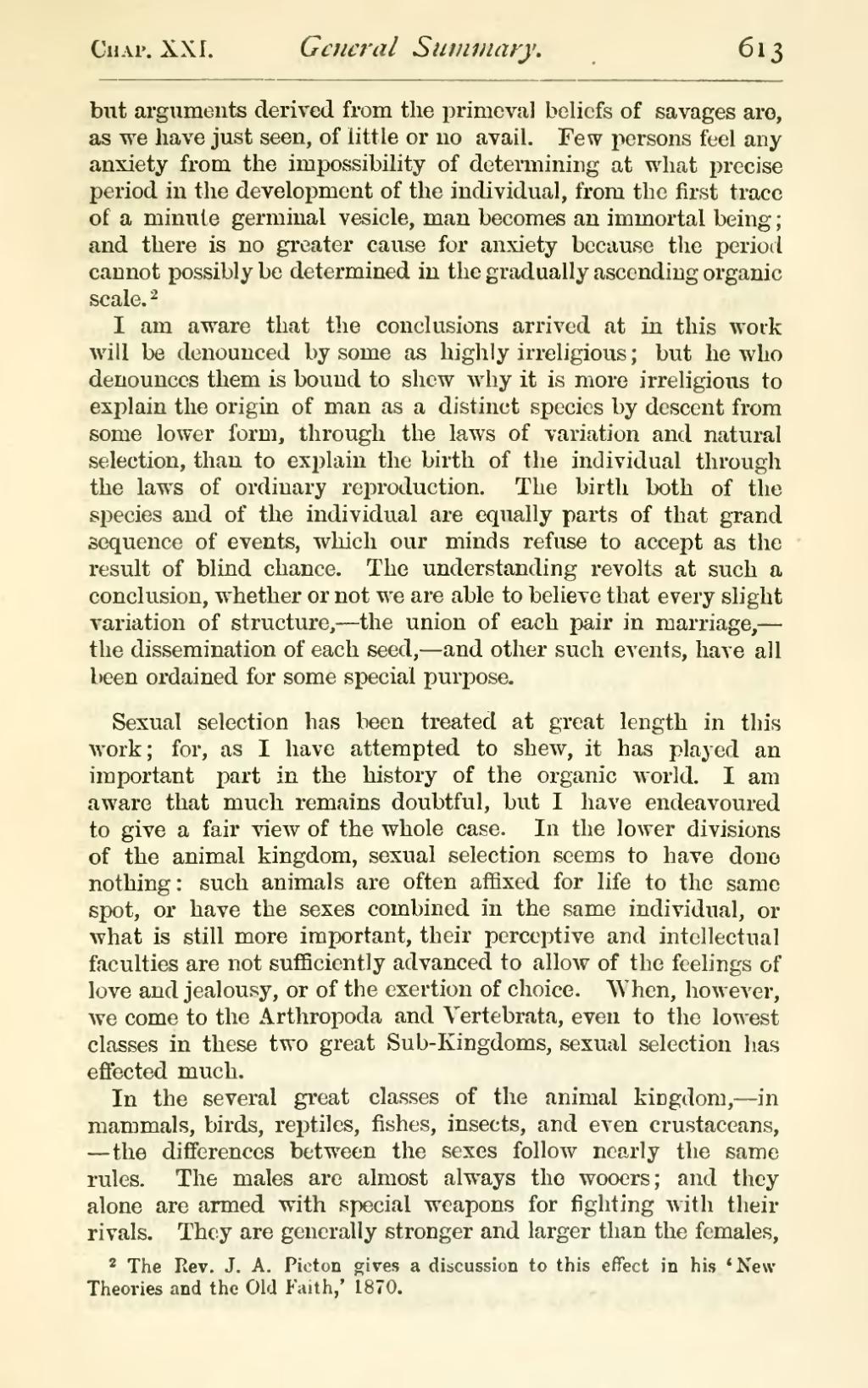but arguments derived from the primeval beliefs of savages are, as we have just seen, of little or no avail. Few persons feel any anxiety from the impossibility of determining at what precise period in the development of the individual, from the first trace of a minute germinal vesicle, man becomes an immortal being; and there is no greater cause for anxiety because the period cannot possibly be determined in the gradually ascending organic scale.[1]
I am aware that the conclusions arrived at in this work will be denounced by some as highly irreligious; but he who denounces them is bound to shew why it is more irreligious to explain the origin of man as a distinct species by descent from some lower form, through the laws of variation and natural selection, than to explain the birth of the individual through the laws of ordinary reproduction. The birth both of the species and of the individual are equally parts of that grand sequence of events, which our minds refuse to accept as the result of blind chance. The understanding revolts at such a conclusion, whether or not we are able to believe that every slight variation of structure,—the union of each pair in marriage,—the dissemination of each seed,—and other such events, have all been ordained for some special purpose.
Sexual selection has been treated at great length in this work; for, as I have attempted to shew, it has played an important part in the history of the organic world. I am aware that much remains doubtful, but I have endeavoured to give a fair view of the whole case. In the lower divisions of the animal kingdom, sexual selection seems to have done nothing: such animals are often affixed for life to the same spot, or have the sexes combined in the same individual, or what is still more important, their perceptive and intellectual faculties are not sufficiently advanced to allow of the feelings of love and jealousy, or of the exertion of choice. When, however, we come to the Arthropoda and Vertebrata, even to the lowest classes in these two great Sub-Kingdoms, sexual selection has effected much.
In the several great classes of the animal kingdom,—in mammals, birds, reptiles, fishes, insects, and even crustaceans,—the differences between the sexes follow nearly the same rules. The males are almost always the wooers; and they alone are armed with special weapons for fighting with their rivals. They are generally stronger and larger than the females,
- ↑ The Rev. J. A. Picton gives a discussion to this effect in his 'New Theories and the Old Faith,' 1870.
